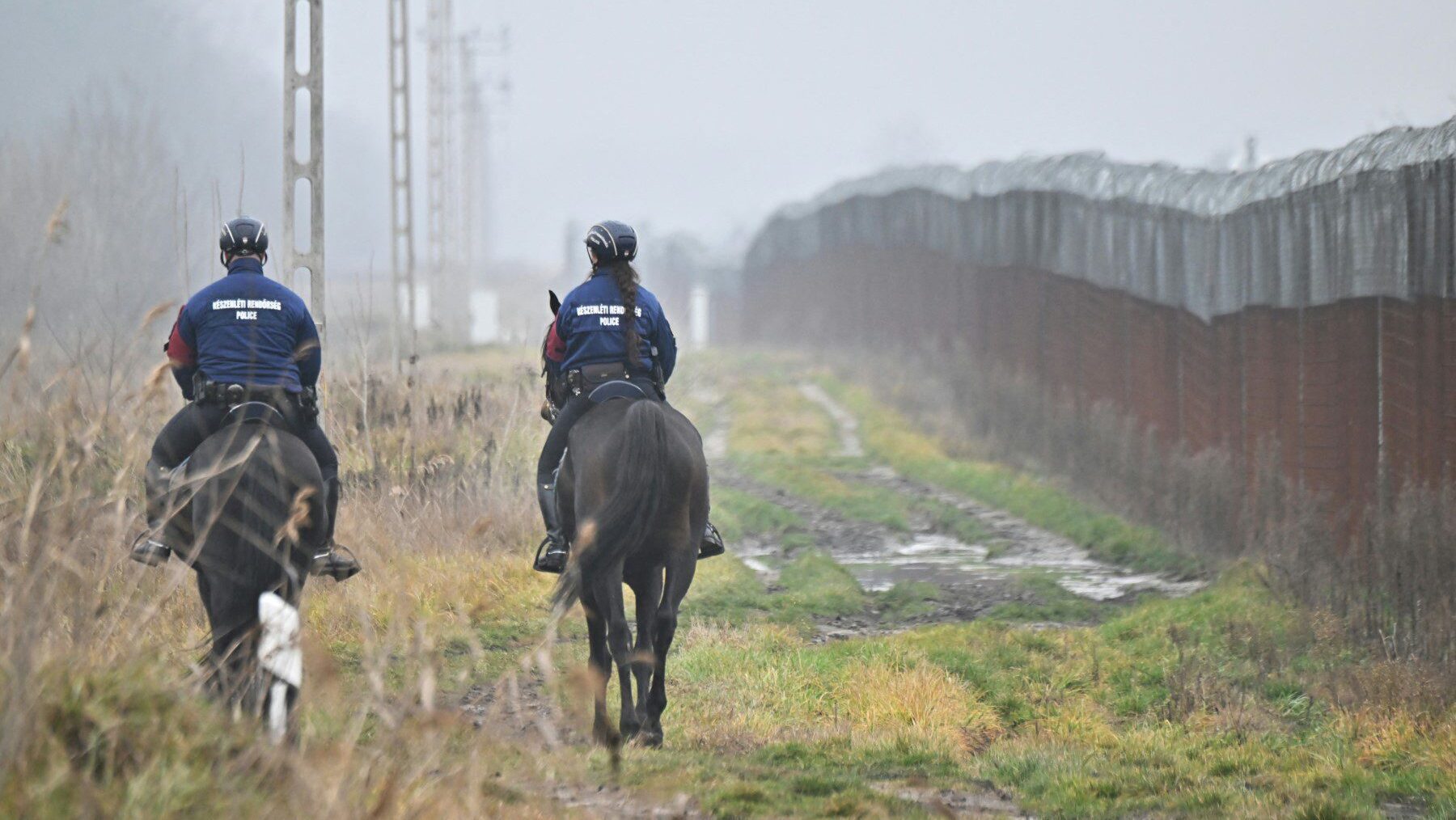
Hungarian border police officers patrol on horses on December 15, 2022 at the Hungarian-Serbian border, close to Kelebia village. In August 2022, the Hungarian government decided to strengthen the already existing 165-kilometer security border fence and build a new border protection system at the south part of the border.
Photo: Attila KISBENEDEK / AFP
The conservative government of Hungary has officially requested an opt-out from the European Union’s Migration and Asylum Pact. In a letter to the European Commissioner for Home Affairs, Ylva Johansson, Hungary’s Minister of EU Affairs János Bóka wrote that “re-establishing a stronger national control over migration is now the only option” to “effectively stem illegal migration.”
Hungary is committed to take firm steps to protect its borders & curb illegal #migration that poses a threat to national security. Hungary believes that re-establishing stronger national control over migration is now the only option to achieve this. 2/2 pic.twitter.com/n5TWzbjzF2
— Bóka János (@JanosBoka_HU) October 7, 2024
Hungary voted against the adoption of the Migration Pact this year, criticising the pact’s ‘mandatory solidarity mechanism’ which forces member countries to choose between accepting migrants or paying hefty sums into a common fund. Hungary, like other Central European states, have argued that the pact—which intends to deliver a common European approach to the problem of mass immigration—will be another pull-factor for migrants wanting to make the journey to Europe.
Hungary has been vigorously defending its southern borders—also one of the EU’s external borders—since the beginning of the migration crisis in 2015, including by erecting a fence to stop illegal migrants from entering the border-free Schengen Area. However, the EU has not provided the country with any financial assistance, but instead punished Hungary for not admitting illegal migrants.
Budapest has reacted by threatening the EU, saying that if it wants migrants, Hungary will let them in and give them a one-way bus ticket to Brussels. Hungary also warned that unless the EU starts conducting asylum procedures outside of its borders—like Hungary is doing—then member states will resort to reinstating their own internal borders—like Germany has recently done, putting pressure on the ideal of Schengen.
In his letter to Brussels, János Bóka states that his government is “committed to taking firm steps to protect its borders and curb illegal migration that poses a threat to national security.” As “re-establishing a stronger national control over migration is now the only option to reach these objectives,” Hungary is asking for an opt-out from the Migration Pact. It acknowledges that this could only be implemented when the EU Treaty is next amended, and that all twenty-seven member states’ consent is required.
Great news! 🇭🇺Hungary has officially joined the 🇳🇱Netherlands and requested an opt-out from EU asylum & migration rules. Instead of imposing a failed migration policy on a mandatory basis, we should strengthen national control of MS to fight more effectively against illegal… https://t.co/ZI7Yp4SH7s
— Kinga Gál (@kingagalMEP) October 7, 2024
Hungary is following in the footsteps of the right-wing Dutch government which also recently announced its intention to opt out of the Migration Pact. “We need to be in charge of our own asylum policy again,” Asylum and Migration Minister Marjolein Faber said. No EU treaty change is expected any time soon, however, and Faber made clear that the Netherlands would meanwhile implement the pact.
But it is not only Hungary and the Netherlands that want a U-turn in migration policy. Seventeen European countries are calling for a “paradigm shift” in migration policy to ensure asylum seekers whose applications have been declined are effectively and speedily sent back to their home countries.
The deportation success rate in the EU stands at 29.5%, meaning a large majority of migrants who have been ordered to leave the EU are not being returned to countries outside the bloc.
Austria, Croatia, the Czech Republic, Denmark, Finland, France, Germany, Greece, Italy, Luxembourg, Malta, the Netherlands, Slovakia, and Sweden, as well as non-EU states Norway, Switzerland, and Liechtenstein want the European Commission to come up with new guidelines on deportations when tt meets in Brussels on October 17th.
In their request to Brussels, the countries argue:
People without the right to stay must be held accountable. A new legal basis must clearly define their obligations and duties. Non-cooperation must have consequences and be sanctioned.
